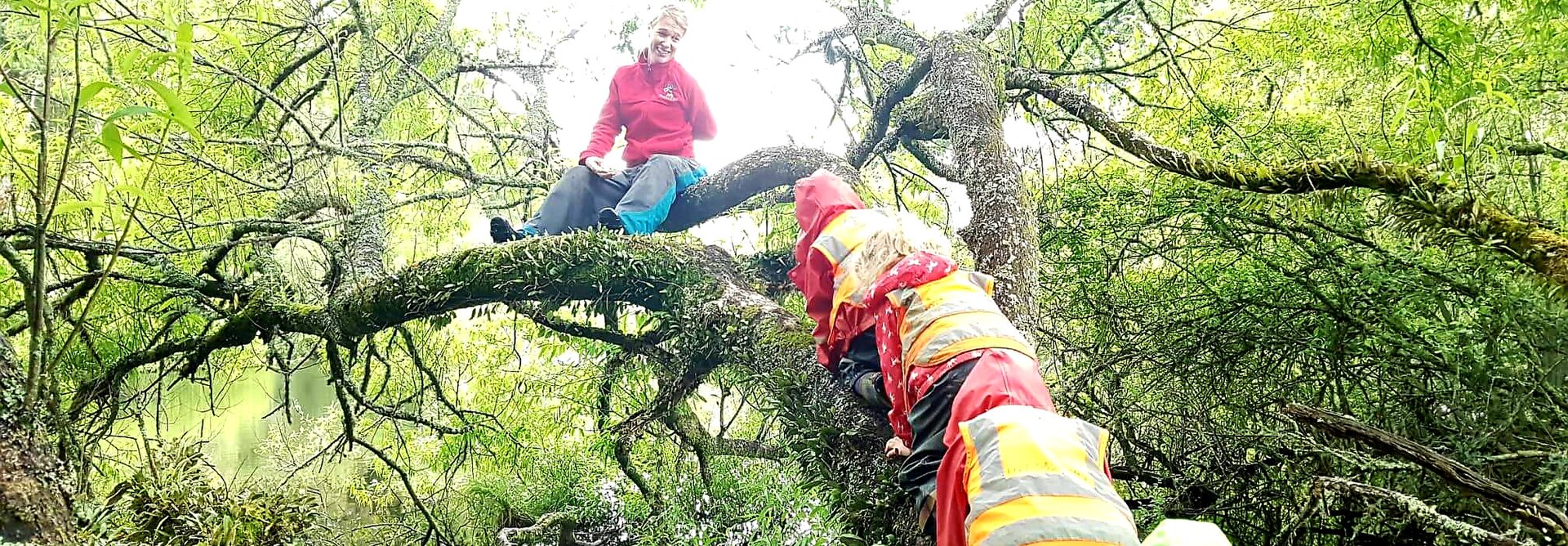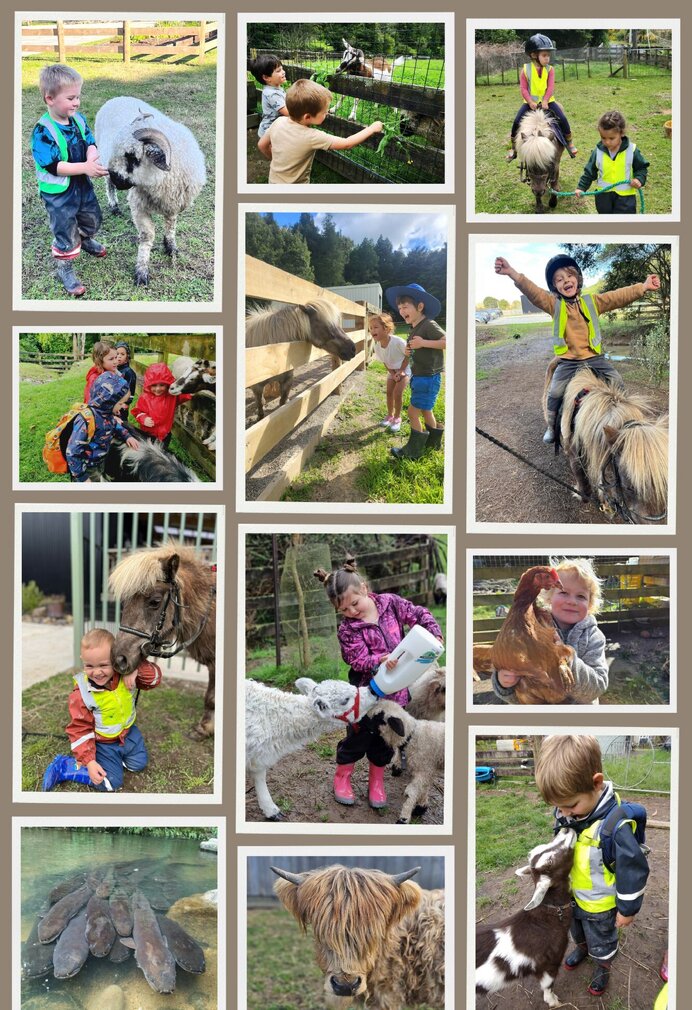Learning alongside kararehe can be a transformative experience for tamariki aged 3 to 6 years. Not only does it offer abundant opportunities for educational growth, but it also fosters empathy, emotional development, and a sense of responsibility. In this blog post, we will explore the benefits of tamariki learning alongside kararehe, backed by research conducted in New Zealand.
Emotional Development:
New Zealand's research has shown that interacting with our kararehe can enhance a tamaiti emotional development. Kararehe provide a source of comfort and companionship, allowing tamariki to develop a sense of empathy and nurturing. Caring for kararehe - feeding and cleaning troughs and enclosures, encourages tamariki to recognize and respond to their needs, helping them learn how to manage their own emotions while also fostering a deep sense of compassion.
Language and Communication Skills:
Studies from New Zealand also highlight the positive impact of kararehe on our tamariki language and communication development. Interacting with kararehe encourages verbal and non-verbal communication, as our tamariki learn to observe, imitate, and interpret various kararehe behaviors - effectively listening to the kararehe communication. In turn, kararehe are patient listeners, providing a non-judgmental space for tamariki to practice their language skills, build vocabulary, and engage in meaningful conversations received with love.
Cognitive Development:
Learning alongside kararehe also promotes cognitive development in early childhood. Research shows that kararehe can stimulate curiosity, problem-solving abilities, and critical thinking skills. Engaging with kararehe encourages our tamariki to observe and make connections, which enhances their cognitive flexibility and enhances their ability to think analytically.
Physical Development:
The physical aspect of learning alongside kararehe should not be overlooked. Interacting with our farm pets involves physical activities such as feeding, grooming, and playing, which contribute to essential motor skills development. We watch our Spice develop our tamariki balance, co-ordination and spatial awareness with each riding lesson she takes. Feeding or brushing our kararehe also helps improve fine motor skills and hand-eye coordination.
Responsibility and Empowerment:
Research conducted in New Zealand emphasizes the positive impact of kararehe interaction on developing a sense of responsibility and empowerment. Caring for them teaches our tamariki about accountability, as they realize that their actions directly impact the well-being of another living being. By taking on age-appropriate tasks, such as feeding, leading, cleaning stables and water troughs, tamariki gain a sense of accomplishment and develop a responsible attitude towards their actions.
Conclusion:
Engaging with kararehe offers numerous benefits for children aged 3 to 6 years, encompassing emotional, cognitive, physical, and social aspects of their development. Based on research conducted in New Zealand, this blog post has highlighted the positive impact of learning alongside animals on empathy, language skills, cognitive abilities, physical development, responsibility, and empowerment. It is crucial for whaanau, kaiako and society as a whole to recognize the potential of kararehe-assisted learning and provide our tamariki with opportunities to interact and learn alongside kararehe fostering their holistic development. Thanks to Spice, Lolly, Oreo, Marigold, Daphne, Nigella, Baarbra, our ducks and our chickens, we are grateful to be able to offer our precious tamariki this every day!

